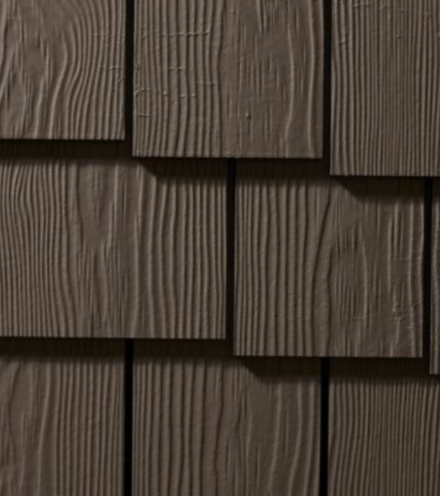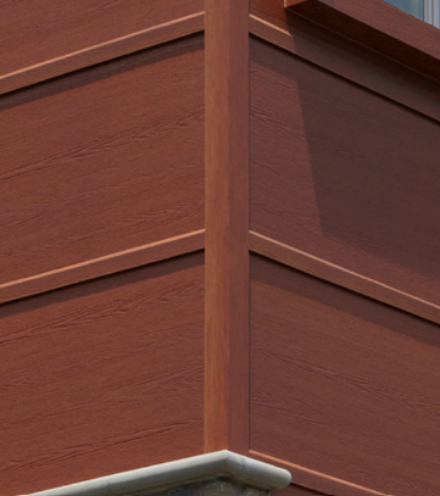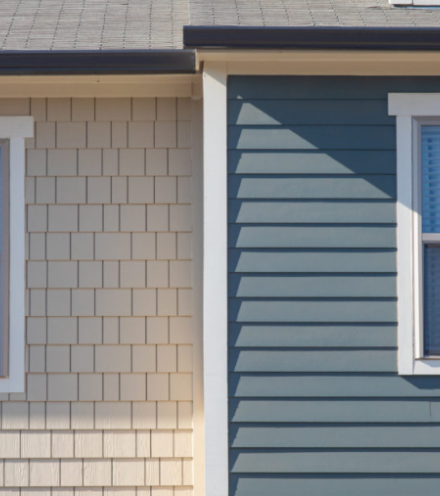When you’re updating the exterior of your home, it’s important not to overlook the little details, like trim, that can help complete the entire design. Door trim serves two purposes for your exterior. It covers the edges of your siding, allowing for expansion and contraction and gives it a finished look, and it also helps complete the architectural details of your home.
It’s important to match your home’s style with the style of your door trim. Trim comes in a wide range of styles, most of which are available in different materials as well, including wood, engineered wood, fiber cement, PVC, and MDF. Not every trim is available in every material, but most types of trim are available to match.
What is Door Trim?
Some door trim is sold as a set, meaning that you select your style, size, and material and simply order it all at once. However, a lot of door trim is sold in pieces so that you can mix, match, and customize the look of your front door. The key is to understand that typical door trim is made up of two distinct segments.
The two pieces of trim that go on either side of your door are known as “pilasters,” while the top piece is called a “lintel.” Sometimes, the entire unit may be referred to as the door casing, with the top piece, otherwise known as the “header.”You can mix and match pilasters with lintels to get different looks. In some cases, you can also layer pieces of trim on the pilasters or lintels to get a more decorative or built-up casing, so if the material you’ve chosen doesn’t have the style you want, it’s sometimes possible to create it this way.
How to Choose Trim for Your Home
Trim is often considered the finishing touch on a home’s exterior. It frames your home by accentuating its best features and elevating its overall look. As such, choosing the right trim is super important.
Choosing the perfect trim involves more than just picking out a color or style. You need to understand the trim’s durability, life expectancy, maintenance requirements, and how it complements your home’s exterior. If you’re looking for a high-quality, stylish option with a ton of features, you should definitely consider Allura’s fiber cement trim options.
Our fiber cement trim provides an excellent balance between aesthetic versatility and durability, which is why it’s so popular among homeowners. It’s resistant to fire, rot, and termites, which means it not only enhances your home’s appearance, it also contributes to its safety and structural integrity.
4 Things to Consider When Choosing Trim
When choosing trim for your home, it’s important to break down your selection process into four critical areas: materials, sizes, colors, and styles. Each of these elements plays a crucial role in the trim’s appearance, performance, and durability over time.
1. Material
The choice of material for your trim is foundational to its durability and maintenance needs. Fiber cement is renowned for its resistance to elements and minimal upkeep, which makes it a wise choice for any homeowner.
2. Size
The size of the trim you choose can dramatically affect the overall look of your home. Larger trim sizes can make a bold statement and frame your home’s features more prominently, while smaller sizes can add subtle elegance and detail.
3. Color
The color you choose can either complement or contrast with your home’s exterior by creating a cohesive look or a standout feature. Be sure to choose a manufacturer that offers a lot of color options, like Allura.
4. Style
Finally, the style of trim you select should reflect the architectural design of your home. Whether your home is modern, traditional, or somewhere in-between, choosing a trim style that aligns with your home’s character is key to achieving a harmonious exterior design.
10 Beautiful Front Door Trim Ideas
You can find door trim in a wide range of styles. Some are suited to certain types of architecture, but most are interchangeable, and you will easily be able to find something that suits the style of your home. Here are ten inspiring exterior door trim ideas to inspire your next project:
1. Rounded

For a rounded door trim, the lintel or header is arched above the door. Keep in mind that your door does not need an arch to feature this trim, but you will need to fill the space between the door and the lintel with either glass or other material.
The pilasters on the trim can be smooth or channeled, depending on the level of detail you want.
2. Extended with Fillet

Make your front entrance look bigger by extending the trim to surround not only the door, but also windows or transoms. This will let more light into your entryway, while making the space look bigger. This door is trimmed in an extended casing that has been filleted, or has a second, thinner trim applied on top of the first to give it a more detailed appearance.
3. Mitered Flat Stock

If you’re looking for a more minimal appearance for your door casing, considered a mitered flat stock trim. Flat stock refers to trim that’s made of simple, plain material which can be made of wood, fiber cement, PVC, or engineered wood. It has no decorative detail and the lintel is mitered to join the pilasters without any additional detail.
4. Butted Flat Stock

A slightly different take on the flat stock trim is to have the pilasters butt straight into the lintel, without mitering the corners. This is a more modern approach than mitering, and can make your lintel look more substantial than it might otherwise.
5. Extended J Channel

This home is using extended door trim to feature several glass window panels around the door. The trim itself is very subtly J-channeled, having a slightly bumped out edge that adds a little bit of detail and dimension to the trim, without overpowering the glass.
6. Craftsman Flat Stock

The door on this home has a very simple Craftsman trim made of flat stock. In a simple Craftsman trim, the lintel is slightly larger than the width of the pilasters, which butt straight into it. There is no other detail to the trim, which may be made of nearly any flat material including wood, PVC, fiber cement, or MDF.
7. Craftsman with Fillet

This home features a simple Craftsman door with a window to one side done in natural wood. The Craftsman trim is done with a slight fillet on the underside of the lintel, which is matched on the window. This gives it a little more detail, and helps it match some of the other elements on the rest of the home.
8. Rounded J-Channel

The wood trim on this door is not only curved on the top to match the curve of the door below, it also has a J-channel detail to it. This helps set the door apart from the trim slightly, and since both are made from the same material and the same color, the detail allows for an important visual separation of the two.
9. Curved Mantel and Pilaster

This home features a slightly more elaborate trim known as a mantel and pilaster. It’s also extended to incorporate two inlaid panels and a glass transom. This brings a lot of detail and attention to the front door, with decorative elements that match the window lintels on the rest of the home.
10. Double Flat Stock

This home features two sets of door trim, both done in flat stock, with the outer trim having a rounded top and the inner trim framing the door completely. Both types of trim are free from any decorative elements, and layering them brings depth and dimension to the home with a greater focus on the front entrance.
Select Your Ideal Door Trim
Trim comes in all styles and materials from plain to decorative, and everything in between. Use this guide as a starting point for finding your ideal trim and complete the exterior of your home with ease.
Contact Allura today for great deals on stylish door trim.




